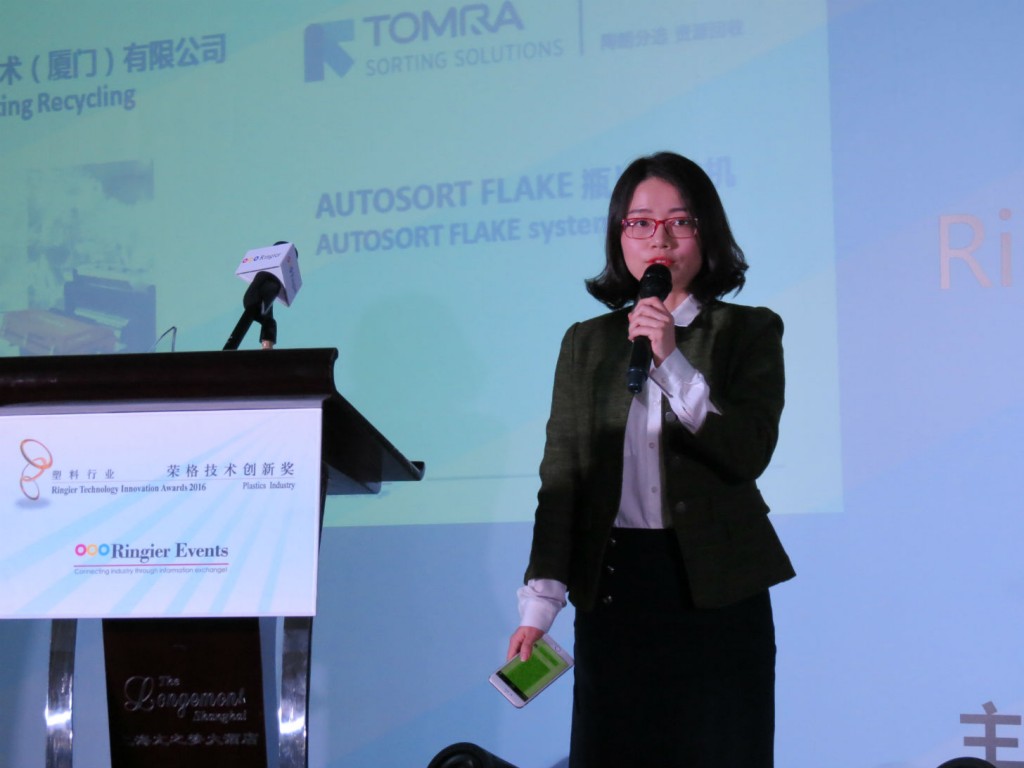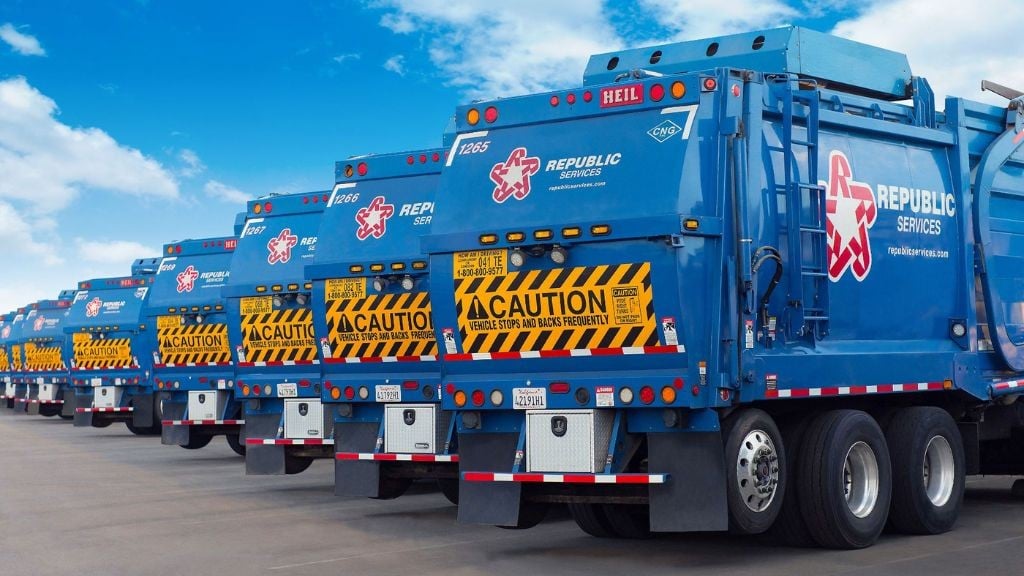TOMRA Sorting Recycling wins China's prestigious Ringier Technology Innovation award for AUTOSORT FLAKE

TOMRA Sorting Recycling has been declared a winner in the ´2016 Ringier Technology Innovation Awards – Plastics Industry'. New to the 2016 awards was the category for Recycling Machinery, which TOMRA Sorting Recycling won for their highly innovative AUTOSORT FLAKE sorting system which was launched and introduced to the market in China in 2015. The award was presented at a ceremony in Shanghai, on March 17th.
"At TOMRA, we are very honored to receive this Ringier Technology Innovation award," said Kelly Xie, Head of TOMRA Sorting Recycling China. “Resulting from over two years of development, we’re confident the AUTOSORT FLAKE is the epitome of advanced automated waste sorting and recycling systems. It's extremely gratifying to know that our efforts and innovative design engineering are recognized and appreciated."
Although the AUTOSORT FLAKE’s immediate application is the sorting of polyethylene terephthalate (PET) flakes prior to recycling, the AUTOSORT FLAKE is an extremely versatile machine. It is capable of sorting three waste streams, as well as being able to sort both metals and colored materials, including non-transparent colored materials. This means that, today, the main application for the AUTOSORT FLAKE is the sorting of recycled polyester (rPET) flakes, but additional applications include the sorting of PE/PP, E-scrap, and PVC flakes.
The AUTOSORT FLAKE can process three categories of materials simultaneously. Using an EM3 sensor, the metals are separated based upon their electromagnetic properties. RGB illumination can also be used to sort non-transparent metals. At the same time, the AUTOSORT FLAKE is capable of processing polymers through the implementation of near-infrared (NIR) sensors. Finally, RGB LED illumination is used to detect non-transparent colored materials, including stones, metals, ceramics and glass. The RGB transmission technology used for colored sorting is considered state-of-the art technology in the PET sorting industry.
At the same time, the AUTOSORT FLAKE can process polymers, where separation is enabled by near-infrared (NIR) sensors. Colored items are the third category, where RGB LED illumination allows detection of non-transparent colored materials, including stones, metals, ceramics and glass. Colored sorting based on RGB transmission is considered state-of-the art technology in PET sorting today.
The NIR sensor detection of PET flakes is made possible through the use of a FOURLINE optic module. This technology is capable of simultaneously scanning four-lines of individual pixels that have dimensions greater than 2mm; a resolution which, once again, reflects the fact that this technology used in the NIR sensor is at the forefront of the latest automated sorting. The FOURLINE optic module also enables the continuous calibration of the AUTOSORT FLAKE, by means of a white reference installed inside the scanner.
"Continuous calibration ensures our customers can eliminate errors that would normally result in costly downtime, providing a stability of output TOMRA Sorting's rivals cannot match," noted Valerio Sama, Product Manager Recycling. "This groundbreaking feature contributes to low maintenance requirements and low energy consumption, as well as proving that it is indeed possible to protect environmental resources while reducing operating costs. All of this means a quicker ROI for our customers."
Launched in 2006, the Ringier Technology Innovation Awards have become one of the most influential and prestigious industrial Awards in China, primarily because of its neutral judging process. Only new products and solutions launched during 2015-2016 in the China market were eligible to enter the 2016 Awards selection process. Entries for each innovation Awards category were shortlisted by the panel of judges – all of whom are industry experts. The general public then voted for the winners via the official website of the Awards, and the final winners list was selected by the panel of judges based on entry review, evaluation and the public voting results.



